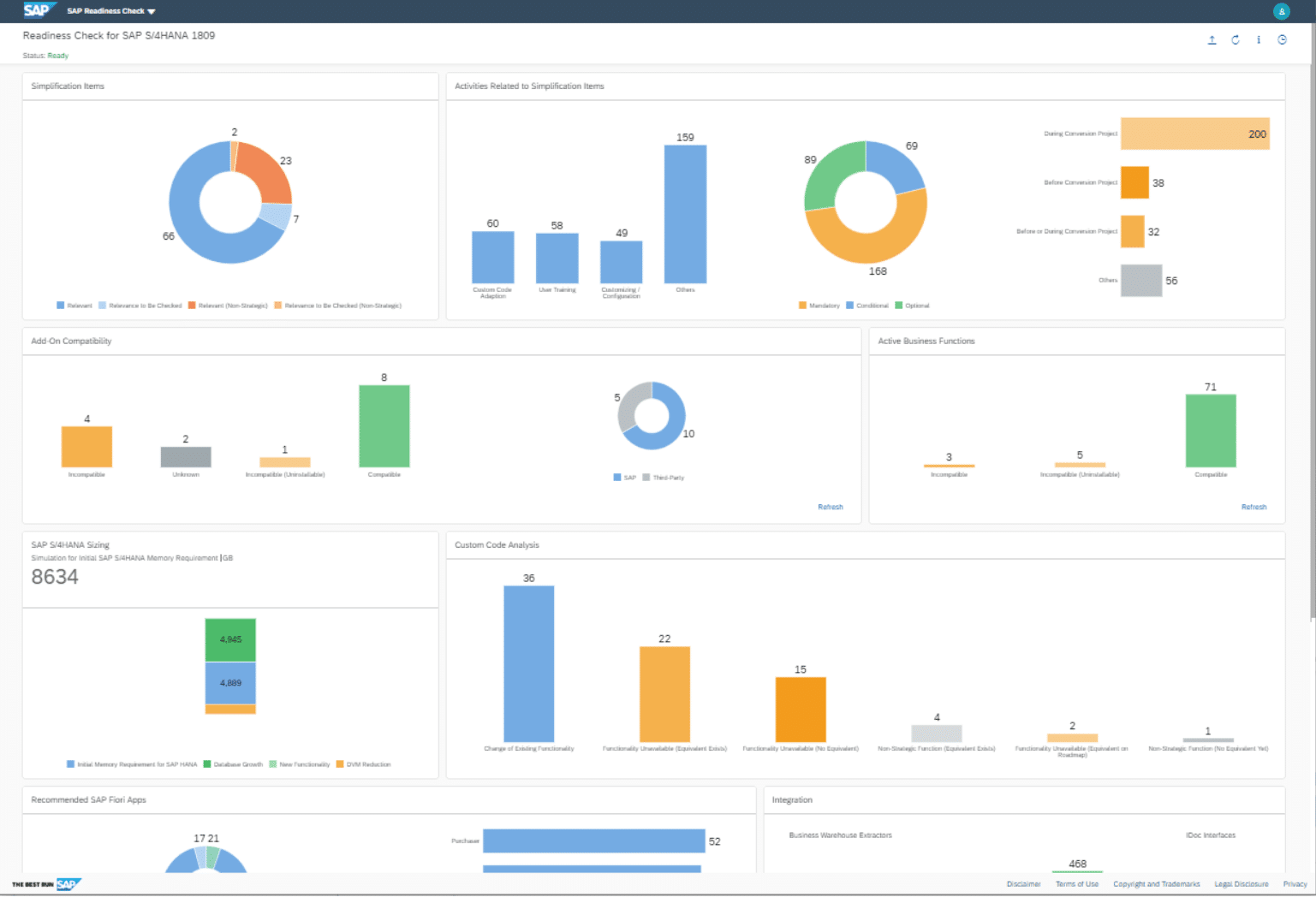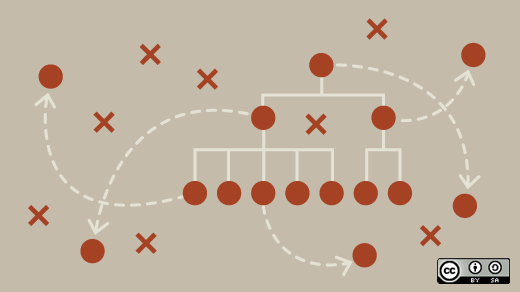
Commercial Enterprise Resource Planning (ERP) software has been a game-changer for many companies in streamlining their business processes. With the rise of digitalization, businesses need a comprehensive system that can handle all their operations from sales to procurement and finance. In this blog post, we will discuss the best commercial ERP software available in 2023.
What is Commercial ERP Software?

Commercial ERP software is an integrated management system used by businesses to automate and streamline their workflows and processes. It includes modules for accounting, human resources, inventory management, customer relationship management, supply chain management, and more. These modules are designed to work together seamlessly, providing real-time data and insights into various aspects of the business, enabling better decision-making.
Top 5 Commercial ERP Software in 2023

Choosing the right ERP software is crucial for businesses as it can significantly impact their efficiency and productivity. Here are the top 5 commercial ERP software in 2023:
-
SAP S/4HANA is a cutting-edge enterprise resource planning (ERP) system designed to cater to the modern-day business needs. It is based on in-memory computing and real-time analytics that enable businesses to access up-to-date information, gain valuable insights, and make informed decisions. The solution offers a wide range of features that can help businesses streamline their operations, optimize processes, and achieve better efficiencies.
One of the primary advantages of SAP S/4HANA is its ability to provide real-time data and analytics. This means that businesses can access up-to-date information about their operations, customers, suppliers, and other stakeholders. This timely data can help businesses respond quickly to changing market conditions, customer demands, and other factors that may impact their operations. With this information at their fingertips, decision-makers can make informed decisions that positively impact their bottom line.
Another significant advantage of SAP S/4HANA is its ability to increase productivity. The solution provides advanced automation capabilities that can help businesses reduce manual efforts, eliminate errors, and improve efficiency. For instance, SAP S/4HANA can automate routine tasks like invoicing, purchase orders, and inventory management, freeing up employees to focus on more value-added activities. By automating these processes, businesses can save time, reduce costs, and accelerate their operations.
SAP S/4HANA also offers a range of features that can help businesses reduce costs. For example, it provides financial planning and analysis capabilities that allow businesses to track their expenses, revenue, and profitability in real-time. This information can help businesses identify areas where they can reduce costs, optimize spending, and improve their financial performance.
Additionally, SAP S/4HANA offers project management capabilities that can help businesses manage their projects more efficiently. The solution provides tools for planning, scheduling, tracking, and reporting on project progress, ensuring that projects are completed on time, within budget, and to the required quality standards.
Finally, SAP S/4HANA provides supply chain management capabilities that can help businesses manage their supply chain more effectively. The solution offers features like inventory optimization, demand forecasting, and supplier management that can help businesses reduce stock-outs, improve delivery times, and enhance customer satisfaction.
In summary, SAP S/4HANA is an intelligent ERP system that offers real-time data and analytics, productivity enhancements, cost reductions, project management capabilities, and supply chain management features. By leveraging these capabilities, businesses can optimize their operations, gain competitive advantages, and achieve better business outcomes.
-
Oracle NetSuite is an enterprise resource planning (ERP) software that operates in the cloud, meaning it can be accessed from anywhere with an internet connection. It offers a complete set of business management tools that cover areas such as financial management, supply chain management, inventory and warehouse management, order management, procurement, manufacturing, and more.
With Oracle NetSuite, businesses can easily manage their operations and streamline their processes, allowing them to make informed decisions based on real-time data. The system's user-friendly interface and customizable dashboards provide a comprehensive view of all business activities and allow users to monitor key performance indicators (KPIs) and identify trends.
In terms of financial management, Oracle NetSuite provides features such as general ledger management, accounts payable and receivable, budgeting, expense management, and fixed asset management. These tools enable businesses to keep track of their finances and ensure compliance with accounting standards.
Supply chain management features in Oracle NetSuite include purchase order management, vendor management, inventory management, and demand planning. These tools help businesses optimize their purchasing and inventory processes, reducing costs and improving efficiency.
Warehouse management features allow businesses to track inventory levels, manage order fulfillment, and optimize warehouse operations. This includes features such as picking and packing, cycle counting, and shipping integration.
Overall, Oracle NetSuite provides a robust platform for managing business operations efficiently. Its cloud-based design ensures that businesses can access their data and tools anytime, anywhere, and its modular structure allows companies to tailor the system to fit their specific needs. With its extensive range of features and user-friendly interface, Oracle NetSuite is a powerful tool for businesses looking to streamline their operations and gain greater insight into their performance.
- Microsoft Dynamics 365: Microsoft Dynamics 365 is an intelligent ERP system that integrates with other Microsoft products like Office 365 and Power BI. It offers modules for finance, sales, marketing, and operations. Its AI capabilities enable businesses to automate tasks and provide valuable insights to make informed decisions.
- Infor CloudSuite: Infor CloudSuite is a cloud-based ERP system that offers industry-specific solutions for businesses. Its modules include finance, supply chain management, human resources, and more. Its innovative features like AI-powered analytics and social collaboration make it a popular choice among businesses.
- Epicor ERP: Epicor ERP is a flexible and scalable ERP system that offers solutions for manufacturing, distribution, retail, and service industries. Its features include inventory management, financial management, production management, and more. Its user-friendly interface and customizable dashboards make it easy for businesses to manage their operations.
How to Choose the Best Commercial ERP Software?
Choosing the best commercial ERP software requires careful consideration of various factors like:
- Business requirements: Businesses need to identify their specific requirements and choose an ERP system that meets their needs.
- Scalability: The ERP system should be scalable and able to accommodate the business's growth over time.
- User-friendliness: The ERP system should have a user-friendly interface and customizable dashboards that make it easy for users to navigate.
- Integration: The ERP system should integrate with other systems and applications used by the business.
- Cost: The ERP system's cost should be reasonable and provide value for money.
Benefits of Using Commercial ERP Software
Implementing commercial ERP software can offer several benefits to businesses, including:
- Streamlined processes: ERP software automates and streamlines workflows, reducing manual intervention and errors.
- Real-time data: ERP software provides real-time data and analytics, enabling businesses to make informed decisions quickly.
- Improved efficiency: ERP software improves efficiency and productivity by eliminating redundant tasks and improving communication.
- Scalability: ERP software is designed to accommodate businesses' growth and changing needs over time.
- Better customer service: ERP software enables businesses to provide better customer service by improving communication, reducing errors, and improving delivery times.
Conclusion
Choosing the right commercial ERP software is crucial for businesses to streamline their processes and improve efficiency. SAP S/4HANA, Oracle NetSuite, Microsoft Dynamics 365, Infor CloudSuite, and Epicor ERP are some of the best commercial ERP software available in 2023. Businesses need to consider various factors like scalability, user-friendliness, integration, and cost before choosing an ERP system that meets their specific requirements.
FAQs
- What is ERP software? ERP software is an integrated management system used by businesses to automate and streamline their workflows and processes. It includes modules for accounting, human resources, inventory management, customer relationship management, supply chain management, and more.
- What are the benefits of using ERP software? ERP software offers several benefits to businesses such as streamlined processes, real-time data, improved efficiency, scalability, and better customer service.
- Which is the best commercial ERP software in 2023? SAP S/4HANA, Oracle NetSuite, Microsoft Dynamics 365, Infor CloudSuite, and Epicor ERP are some of theleading commercial ERP software options available in 2023. The best option for a particular business depends on their specific needs and requirements, so it's important to thoroughly research and compare different solutions before making a decision.